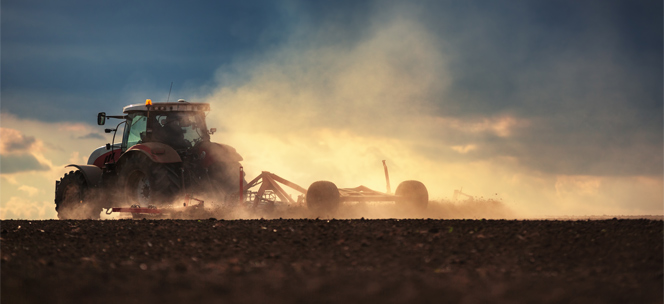Liberal leadership candidates owe farmers answers about carbon taxes

When sales reps roll onto farmyards, the tolerance for nonsense goes down.
When it’s a politician leaning on the tailgate and pontificating, the tolerance for nonsense disappears completely.
Here’s what farmers want to know: Carbon tax - yes or no?
So Mark Carney needs to tell his political handlers to come up with better talking points fast.
“If you are going to take out the carbon tax, we should replace it with something that is at least, if not more, effective,” Carney said. “Perception may be that it takes out more than the rebate provides but reality is different, and Canadians will miss that money, so you need a comprehensive approach.”
Chrystia Freeland said “No more consumer-facing carbon tax.”
Freeland is taking the right first step by committing to axe the consumer-facing carbon tax, but that’s not the only carbon tax that should be on the chopping block.
The second carbon tax and hidden carbon taxes are also costing taxpayers and their impact on farmers shows that Liberal leadership hopefuls should be committing to axe all carbon taxes.
Farmers work hard to put food on plates all around the country and the world. They shouldn’t be punished by a carbon tax that makes it harder for them to make a living.
Canadian farmers have an exemption from the carbon tax on the gas and diesel they use on their farm, but they are still stuck paying it on natural gas and propane. Farmers use these fuels to dry their grain and heat their barns.
Getting rid of the carbon tax helps farmers keep their costs down and helps the agriculture and agri-food sector as a whole weather the storm of any incoming tariffs from our southern neighbour.
Because of the carbon tax, Canadian farmers were already underequipped to compete with their American counterparts. The carbon tax is a cost that farmers in North Dakota and Montana simply don’t have to pay. The carbon tax on only natural gas and propane will cost farmers almost $1 billion by 2030, according to the Parliamentary Budget Officer.
If the Trump administration follows through on its threats of a twenty-five per cent tariff on all goods coming from the Canada to the US, that only makes it more difficult for Canadian producers selling their product.
Truckers coming to pick up animals are also paying the carbon tax. Every time a trucker fills up, they are paying about $200 in carbon tax. This also applies to other shipping costs, moving grain to a port is costing more because of the carbon tax since it makes it more expensive to fill the trains up with diesel.
But the carbon tax directly applied to fuel isn’t the only one that makes it more difficult for Canadian farmers to keep their business alive.
There is the second carbon tax that Ottawa imposed through fuel regulations. Farmers don’t have an exemption from this carbon tax and it will increase the price of gasoline by up to 17 cents per litre and the price of diesel up to 16 cents per litre by 2030, according to the PBO.
Then there is the hidden carbon tax imposed on industry. The hidden carbon tax hits businesses higher up the farm supply chain by making them pay if they emit above the government’s prescribed limit. So, pork farmers isn’t just impacted by the carbon tax when he heats his barn and ships his animals, but also at the processing plant. That processing plant has two options: pay less to farmers or demand more from consumers. That’s a lose-lose situation.
Grain farmers are hit by it too because fertilizer producers are forced to pay this hidden carbon tax and higher fertilizer costs means higher costs for farmers.
Farmers are getting crushed from all angles by the carbon tax. Any leadership candidate serious about affordability and helping Canadian agriculture and making life more affordable, needs to commit to kill the carbon tax, in all its forms.